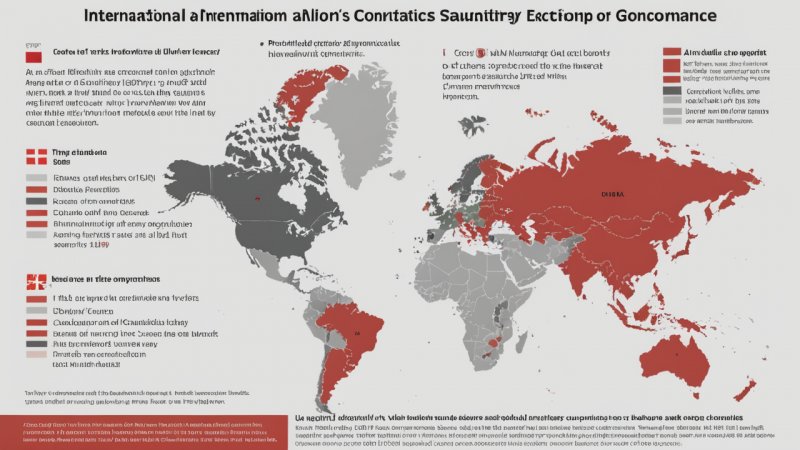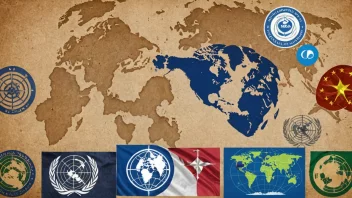International sanctions are a powerful tool employed by countries and international organizations to influence the behavior of nations deemed to be violating international norms or engaging in activities that threaten global peace and security. These sanctions can take various forms, including economic restrictions, trade embargoes, and diplomatic isolation. While the primary objective of sanctions is often to compel a change in government behavior, their ripple effects can extend deep into the domestic policies of the targeted nation. Understanding how international sanctions impact domestic policy is crucial for both policymakers and scholars, as it sheds light on the intricate interplay between global politics and local governance.
The Mechanisms of Sanctions
Sanctions can be imposed for a variety of reasons, including human rights violations, military aggression, or nuclear proliferation. The mechanisms through which these sanctions operate are multifaceted. Economic sanctions, for instance, can restrict a country's access to international markets, thereby limiting its ability to import essential goods and export its products. This can lead to economic downturns, inflation, and increased poverty levels, which in turn can pressure governments to alter their policies. Diplomatic sanctions may sever ties with certain countries, reducing the targeted nation's influence on the global stage and isolating its leadership.
Case Studies of Sanctions and Domestic Policy Changes
Several case studies illustrate the profound effects of international sanctions on domestic policies. One prominent example is the sanctions imposed on Iran over its nuclear program. These sanctions have led to significant changes in Iran's economic landscape, forcing the government to adopt austerity measures, restructure its economy, and seek alternative trade partnerships. The internal pressure generated by these sanctions has also spurred public discontent, leading to protests and calls for political reform.
Another example can be seen in North Korea, where international sanctions aimed at curbing its nuclear ambitions have had dramatic effects on its domestic policy. The government has responded by prioritizing military spending while neglecting the welfare of its citizens. This has resulted in widespread famine and human rights abuses, showcasing how sanctions can exacerbate existing issues rather than resolve them.
Social and Political Implications
The social and political implications of sanctions are profound. In many cases, sanctions can inadvertently strengthen authoritarian regimes by providing them with a scapegoat for economic woes. Leaders may blame external forces for domestic hardships, rallying nationalistic sentiments among the populace. This can lead to a consolidation of power and a crackdown on dissent, as governments seek to maintain control in the face of external pressure.
Conversely, sanctions can also empower opposition movements within a country. Economic hardships can fuel public discontent, leading to protests and demands for change. In some instances, opposition groups can gain momentum and leverage the situation to push for political reform. The effectiveness of this approach, however, varies significantly depending on the political context and the resilience of the regime in power.
The Role of International Organizations
International organizations play a critical role in the imposition and enforcement of sanctions. The United Nations, for instance, often coordinates multilateral sanctions to ensure a unified approach to addressing international crises. However, the effectiveness of these sanctions can be hampered by issues such as enforcement challenges, the presence of black markets, and the potential for unintended consequences on civilian populations.
Moreover, the role of international organizations extends beyond just implementing sanctions; they also provide platforms for dialogue and negotiation. In some cases, sanctions can pave the way for diplomatic engagement, as countries may be more willing to come to the negotiating table when faced with economic hardship. This duality highlights the complexity of sanctions as both punitive measures and potential catalysts for diplomatic solutions.
Conclusion: Balancing Impact and Intent
In conclusion, the impact of international sanctions on domestic policy is a multifaceted issue that requires careful consideration. While sanctions are intended to bring about change in a targeted nation's behavior, their effects can be unpredictable and far-reaching. From economic hardship to political repression, the consequences of sanctions can shape the very fabric of a society. As the global community continues to grapple with the challenges of international governance, understanding the nuances of sanctions and their impact on domestic policy will be essential for crafting effective strategies that promote both accountability and stability.






